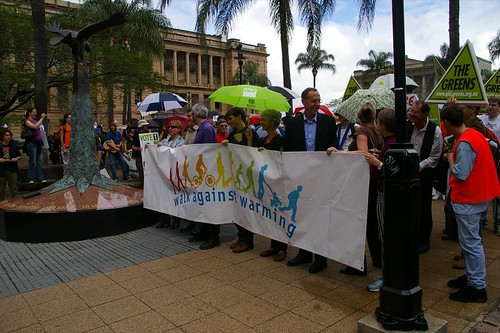My god number two! The big motor companies in the US are continueing to deny Global Warming. I guess this is the expected behaviour of companies who stand to lose the most. They could have forseen this years ago, like Toyota did with the Prius, but no, they will continue to deny it and hope it goes away. Stuupid gringos. They will loose out even more as people are forced not to buy their big gas guzzlers. They are maintaining their profits now but will loose the lot in only a couple years time. My prediction is that you will see big motor company execs resigning with nice big golden handshakes. I don't think that violence helps anything, though I don't mind releasing some anger to suggest that those execs should be stoned if this comes true.
Chrysler's chief economist Van Jolissaint has launched a fierce attack on "quasi-hysterical Europeans" and their "Chicken Little" attitudes to global warming.
His attack is in sharp contrast to the green image that the US car companies have been trying to promote at this year's Detroit motor show.
Mr Jolissaint was speaking at a private breakfast where the chief economists of the "Big Three" US car firms presented their forecasts for auto industry sales this year.
Most of the audience - which was mainly made up of parts suppliers - seemed to nod in agreement with Mr Jolissaint.
Neither Ford's chief economist Ellen Hughes-Cromwick, nor General Motors' chief economist Mustafa Mohatarem, who were on the panel with Mr Jolissaint, questioned his assertion.
Uncertain magnitude
Mr Jolissant, a Chrysler veteran who was recently appointed the chief economist for the German-US DaimlerChrysler Group, said that since he started spending more time at the company's corporate headquarters in Stuttgart he had been shocked by the absurdity of European attitudes towards global warming.
In response to a question from the floor, he said that global warming was a far-off risk whose magnitude was uncertain.
He said that from an economic point of view, it would be more rational to spend lots of money on today's other big problems, and only make small and limited changes in policies relating to global warming, such as a slight increase in gasoline or carbon taxes.
Read the article.





No comments:
Post a Comment